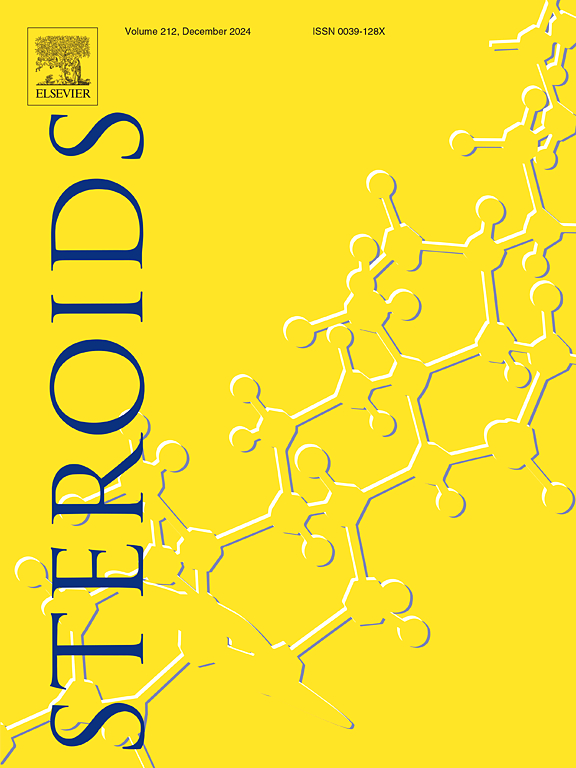在南极洲的康考迪亚,皮质醇、睾酮和身体成分在越冬期间发生了变化
IF 2.1
4区 医学
Q4 BIOCHEMISTRY & MOLECULAR BIOLOGY
引用次数: 0
摘要
南极洲的康考迪亚是地球上最偏远、最荒凉的地方之一。在康科迪亚的越冬呈现出极端的环境条件,包括生理压力[长达三个月的极夜(5月初至8月初)和三个月的极日(11月初至2月初),严寒和高海拔缺氧],以及已知会导致身体和认知改变的隔离和禁闭条件。然而,由于经历这种情况的受试者数量很少,关于越冬期对类固醇激素变化的真正影响的文献仍然很少。使用月度记录,我们因此评估了23名男性参与者越冬对皮质醇和睾酮的觉醒和夜间浓度、身体成分和身体能力的影响,使用切斯特次最大值测试进行评估。在整个越冬期间,23名受试者中有10名(第一组)失去了超过2%的肌肉量。在整个冬季,皮质醇和睾酮在夜间和夜间的浓度都保持不变,身体能力没有明显下降。然而,第1组与第2组的参与者在运动结束时心率更高,在醒来和晚上之间睾酮波动更低(p <;0.05)。这些结果强调了下丘脑-垂体-肾上腺和性腺轴功能对长期极暴露的巨大适应性。考虑到受试者的能量摄入和消耗以及他们最初的身体素质,需要进一步的研究来确定几乎一半的冬季发生的肌肉量变化的机制,以便提出有效的饮食和体育活动对策。本文章由计算机程序翻译,如有差异,请以英文原文为准。
Cortisol, testosterone and body composition changes during overwintering at Concordia in Antarctica
Concordia in Antarctica is one of the most remote and inhospitable inhabited places on the planet. Overwintering at Concordia presents extreme environmental conditions combining both physiological stress [three-month-long period of polar night (early May to early August) and three-month period of polar day (early November to early February), severe cold, and high-altitude hypoxia] and conditions of isolation and confinement known to induce both physical and cognitive alterations. However, given the very small number of subjects experiencing such conditions, literature remains scarce on the real impact of an overwintering period on steroid hormone changes. Using monthly records, we therefore assessed the impact of an overwintering in 23 male participants on awakening and evening concentrations of cortisol and testosterone, body composition and physical aptitude assessed using a Chester submaximal test. Across overwintering, 10 of the 23 subjects (Group 1) lost more than 2 % of their muscle mass. Awakening and evening concentrations of cortisol and testosterone were preserved throughout wintering with no significant deterioration in physical aptitude. However, Group 1 vs. Group 2 participants had higher end-exercise heart rate and lower testosterone fluctuations between awakening and evening (p < 0.05). These results highlighted the great adaptation of the hypothalamic–pituitary–adrenal and gonadal axis functions to long-term extreme polar exposure. Further studies are needed to determine the mechanisms underlying the alteration in muscle mass occurring in almost half of the winterers, taking into account the subjects’ energy intake and expenditure as well as their initial physical aptitude, in order to propose effective diet and physical activity countermeasures.
求助全文
通过发布文献求助,成功后即可免费获取论文全文。
去求助
来源期刊

Steroids
医学-内分泌学与代谢
CiteScore
5.10
自引率
3.70%
发文量
120
审稿时长
73 days
期刊介绍:
STEROIDS is an international research journal devoted to studies on all chemical and biological aspects of steroidal moieties. The journal focuses on both experimental and theoretical studies on the biology, chemistry, biosynthesis, metabolism, molecular biology, physiology and pharmacology of steroids and other molecules that target or regulate steroid receptors. Manuscripts presenting clinical research related to steroids, steroid drug development, comparative endocrinology of steroid hormones, investigations on the mechanism of steroid action and steroid chemistry are all appropriate for submission for peer review. STEROIDS publishes both original research and timely reviews. For details concerning the preparation of manuscripts see Instructions to Authors, which is published in each issue of the journal.
 求助内容:
求助内容: 应助结果提醒方式:
应助结果提醒方式:


